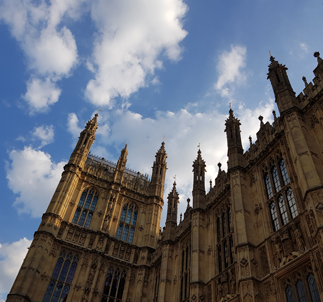The file Prem 15/172 at the National Archives at Kew, west London begins with a cutting from the Daily Mirror of August 19, 1970. It’s one more sign of how closely central government kept an eye on what the press was saying about it. The report said that the government was quietly looking into a possible way of raising salaries of parliamentary secretaries. The new Conservative Government headed by Edward Heath had about 30, like the governments before and since, ‘the lowest form of ministerial life’, as the Mirror unkindly put it. An ordinary MP’s salary was £3750 a year; and these junior ministers got £5500. At least five of the 30 said to the Conservative chief whip Francis Pym that they could only serve a year. Maurice Macmillan, the chief secretary to the Treasury, was given the ‘delicte task of seeing if something could be done for them without creating a Westminster pay explosion’.
As that remark hinted, this subject of MPs’ and ministers’ pay was as sensitive then as it ever was. As the Mirror went on to say, the Chancellor of the Exchequer Anthony Barber had recently warned ‘about the economic danger of the current avalanche of wage claims’. Millions of workers asking for pay rises could ask; why shouldn’t we, if MPs are giving themselves raises?!
Macmillan sent a person letter to Heath dated August 21 that began about what he called the ‘unfortunate story about the salary of Parliamentary salaries as appeared in the Mirror. Since I am mentioned in it I feel that I should draw your attention to it.’ As Macmillan did not add, by writing he was making an effort to show he was not the man who was behind the story in the Mirror. For as Macmillan correctly wrote, this was a ‘serious leak’.
As Macmillan went on, ‘Anthony Royle mentioned to me the difficulty that some junior ministers face in living on their salaries without getting into debt especially because they can no longer charge for tax purposes all the parliamentary expenses that they can as a back-bencher.’ Royle (a fellow Conservative MP, and junior minister) had some ideas to change that, ‘without any increase in actual salary’. As Macmillan went on, the Government was discussing an increase in salary for ‘senior civil servants, judges etc’. Willy Whitelaw (a fellow minister) had expressed some doubts about how long the Government could hold MPs’ salaries ‘without dissatisfaction’. In other words, Royle was suggesting a compromise. Macmillan suggested that Royle wrote to him, and Macmillan would put it to Barber, the Chancellor. Macmillan saw Royle on Sunday, August 16 and told him that the proposal for junior ministers ‘was worth considering’. ‘There was nothing in writing here other than the letter (which was not copied), my covering note to the Chancellor of the Exchequer and a private secretary note of our meeting.’ Such papers were only seen by Macmillan, Barber and their private office; and Macmillan and Royle had been alone when they talked, ‘and could not have been overheard’.
Macmillan had plainly gone into detail to clear himself of wrong-doing, and it did beg the question of who of those other two had passed the story to the Mirror, if indeed it were them and not some other junior minister with an interest in having a rise in income. Fortunately, Macmillan wound up, ‘no notice has so far been taken of this story by the rest of the Press’. and no journalist had tried to follow it up’; which might explain why Macmillan had waited a couple of days to send his letter to the PM. As another sign of how late August was the traditional quiet time for politics and news generally, Macmillan added that he was going to Scotland for a few days; the Chancellor was abroad, and Royle was abroad for a fortnight; it was the holiday season. These were the days before fax machines, let alone mobile phones, and if you physically left London, you could be out of circulation altogether. Macmillan suggested a ‘line’ if anyone in the press asked.
Heath sent Macmillan’s letter ‘in confidence’ to the chief whip and the Lord President, suggesting that he didn’t want the matter to rest. The file ended on September 1, 1970 with a remark by the Lord President, Willie Whitelaw, that he had told Heath that he took it very seriously. If it went on – that is, the talk about ministerial salaries: “It will undermine all my plans for playing MPs’ salaries along. I will speak to the chief whip about the best way of stopping this annoyance,” that is, grumbles that made it into the newspapers, and reflected badly on the Conservatives.
Next: Mrs Thatcher’s secret review into leaks.










